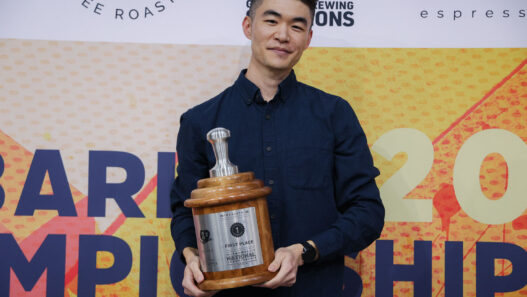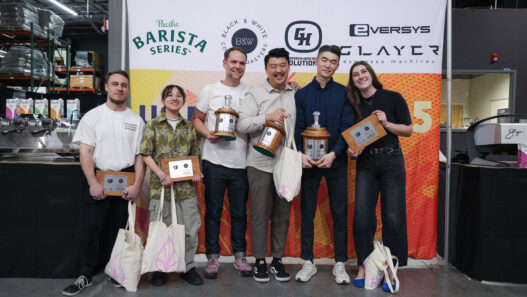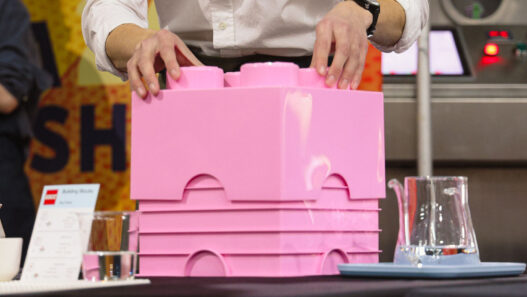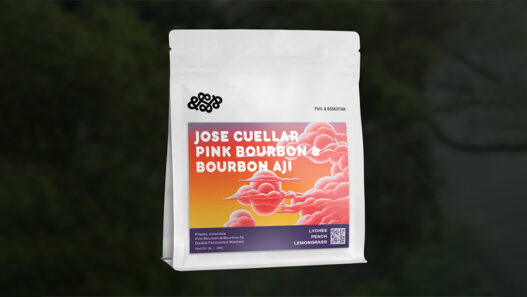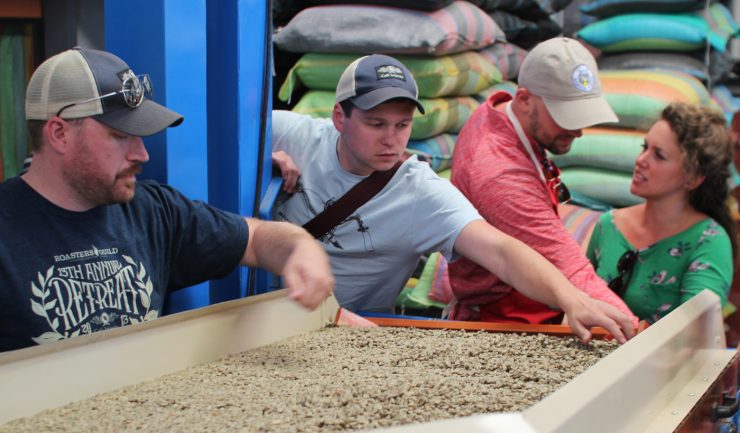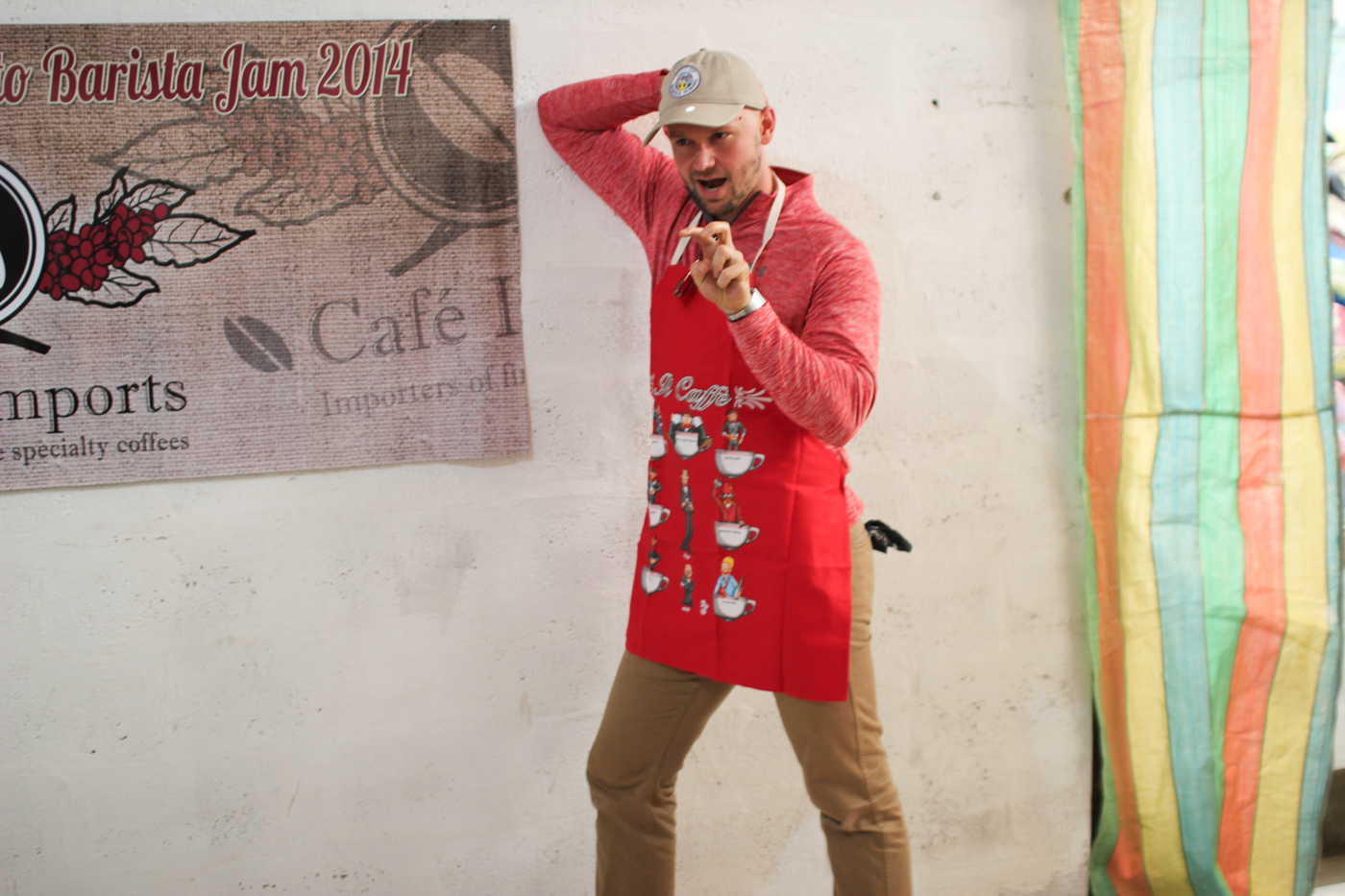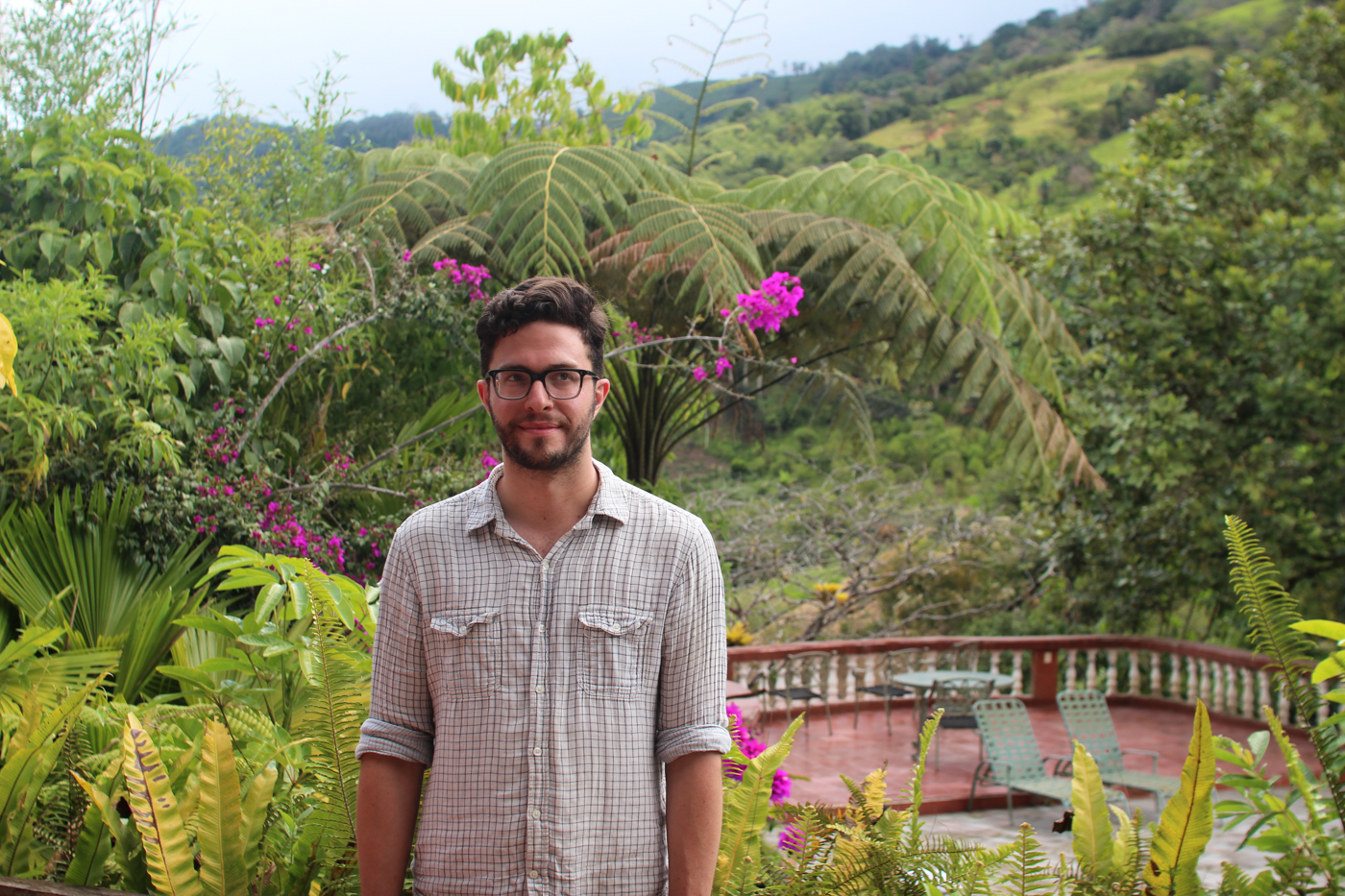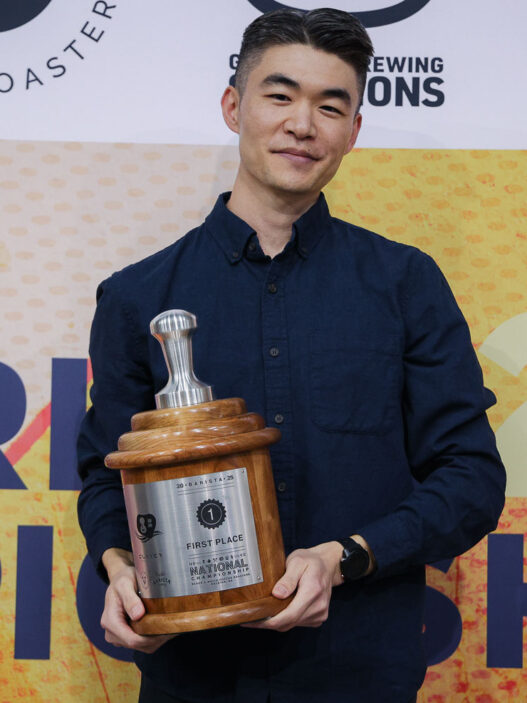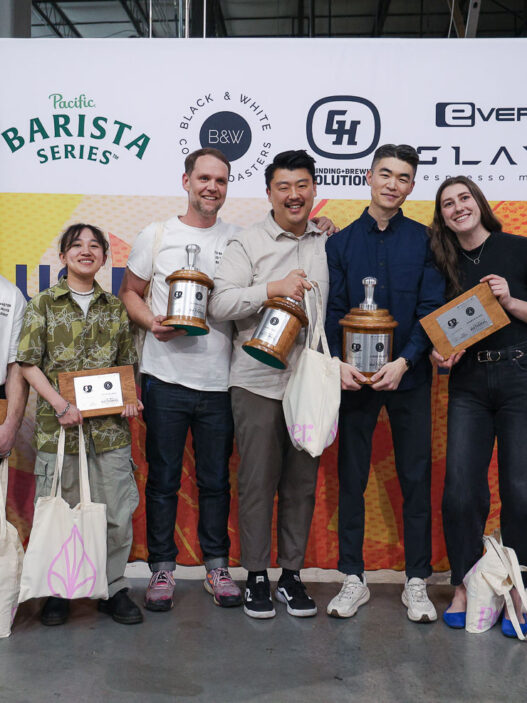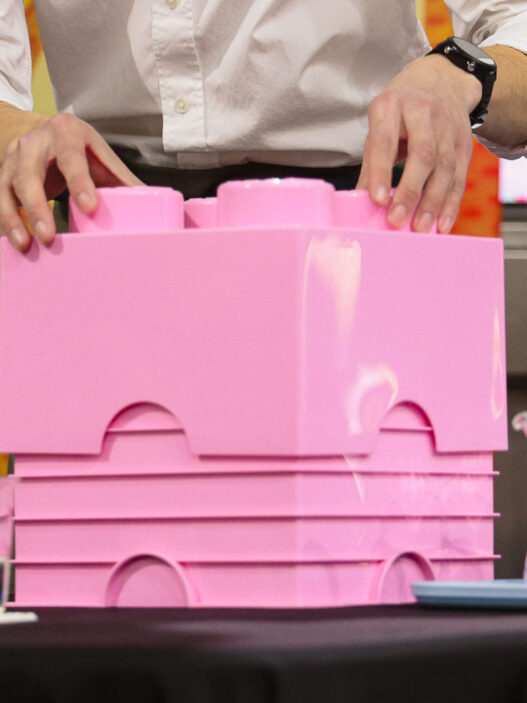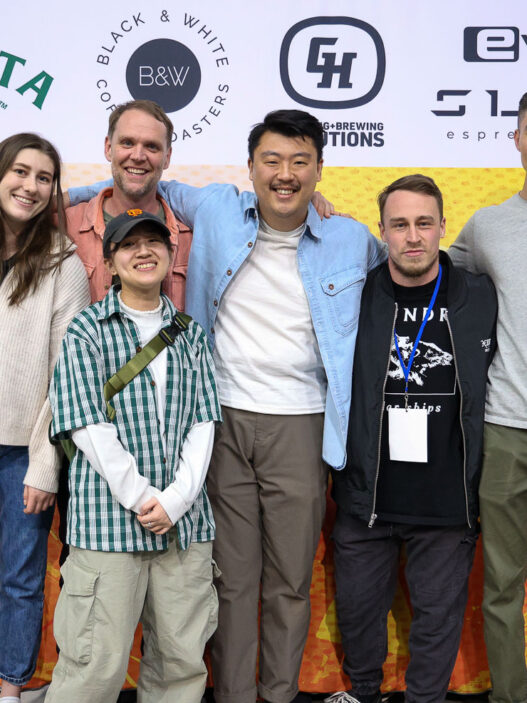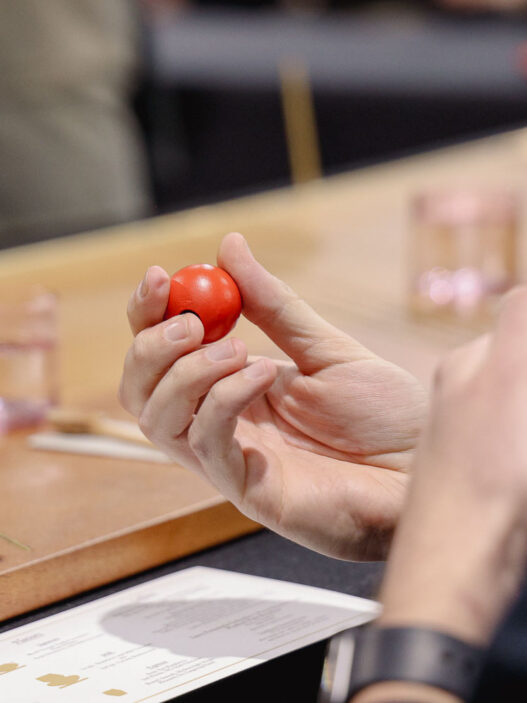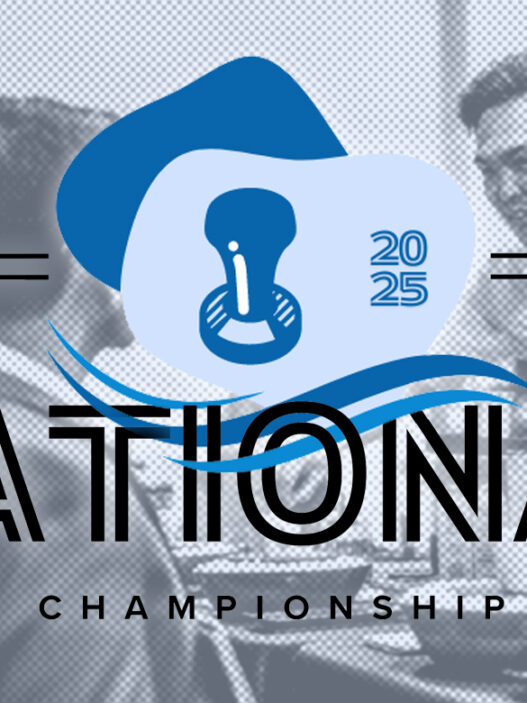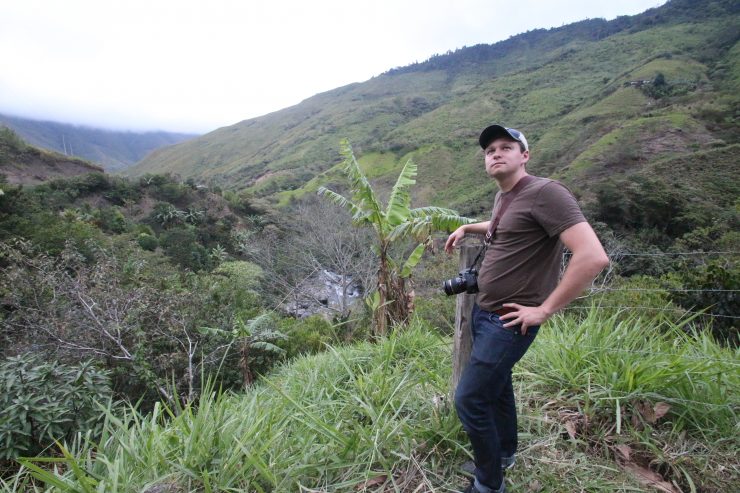
Josh Wismans is a working barista at Colectivo Coffee in Milwaukee, Wisconsin, and winner of the 2014 North Central Region in the United States Barista Championship circuit. His victory earned him a spot on a Cafe Imports origin trip to Ecuador, a prize given to US regional and national winners and the World Barista Champion. Sprudge Assistant Editor Alex Bernson was embedded on this trip, and spoke to Mr. Wismans at a villa in the Ecuadorian countryside.
How did you first get into coffee?
When I first started working at a shop, it was a suburban teenager thing, working at the coffee shop we’d hang out at in high school. I met Nathan Hoida, now the green buyer at Colectivo, when he was working there. I moved to Milwaukee for school–I wound up majoring in Global Studies at the University of Milwaukee–and have been working for Colectivo for the last six years.
What did winning the regional mean for you professionally?
What it really did is solidify “Alright, I’m doing coffee.” I’m really interested in cooperative economics and alternative business models, and I was back and forth with that, thinking of doing urban agriculture stuff. I had competed once before, had started to get involved, and got to know a lot of established professionals. I liked the people I met, but I didn’t feel like I was necessarily one of those people.
Winning the regional I was like, “Okay, I’m doing coffee. This is me.”
What has been the most striking thing for you about going to coffee origin for the first time?
From majoring in global studies, coffee origin has always been the place I want to go. I tried to figure out getting an internship at origin, but wound up doing a humanitarian internship in Haiti.
When you’re into coffee, you do a lot of research, but getting to see it visually tangibly demystifies origin. In the shop, origin gets put on a pedestal, it seems mystical and otherworldly. People know what co-ops and farms are kind of, customers have a vague idea of the things we talk about.
Coming here, you realize that we’re all real professionals working together, and that origin is the most important part of the chain.
You’ve been with Colectivo for six years now. How have you seen the Milwaukee/Midwest market change in that time?
In the last two years, there’s been a bunch of new roasters opening. There’s Valentine, started by some dudes in the restaurant business. Ruby Coffee Roasters from Jared Linzmeier . My friend Tony just moved to Monroe. Bought a sample roaster, got a business plan together, got a loan, and started Yes Coffee Roasters.
There’s a lot of established players, and everyone has their markets they work, but across the board a lot of people are pushing for more specialty coffee. People are loyal to places like Colectivo (it’s been around for 20 years), everyone knows them as an institution. Milwaukee can be pretty insular, with a lot of loyalty to companies, so it’s good to see the established brands pushing it quality too and people opening up to it.
You’ve done a fair amount of travel, what’s the biggest difference for you between US coffee and other countries you’ve noticed?
The similarities struck me most, there’s a lot of communication between coffee professionals in Europe and professionals elsewhere. Especially between northern Europe and what’s going on in America. France and Italy were definitely different.
The whole specialty coffee thing is global. Once everyone gets to the same global standard, in the next few years, I think you’ll see people going in a lot of different directions. It seems like right now a lot of the differences come from shop design, with products being similar. This isn’t just coffee–with globalization and increased access to fresh products, the idea of a “local cuisine” is becoming more complicated.
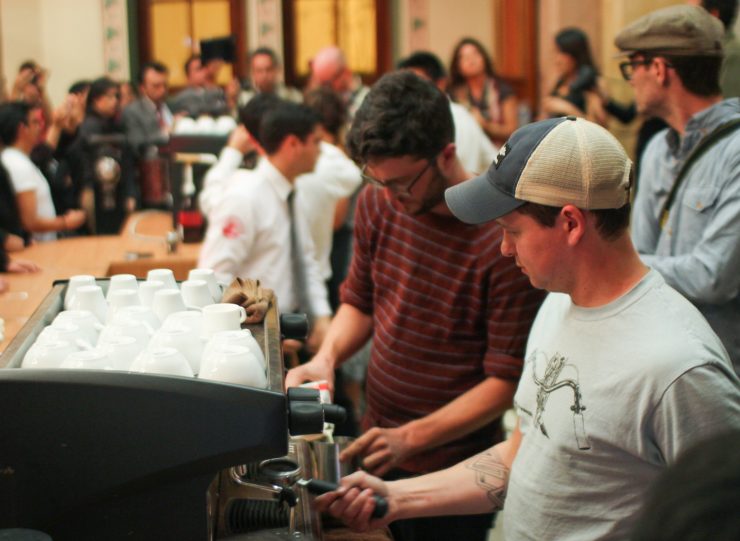
What’s on the horizon for you?
I’ve loved my time in the café, being a barista, but I want to go back in the chain of coffee, towards the international side, the roasting side.
I don’t have the burning desire to compete, it depends on circumstances. You do learn so much though doing it at the United States Barista Championship level; this was my first USBC. USBC is a very different competition from regionals. In regionals, I scored really high on professionalism, and explaining my theme—I chose to focus thematically on how flavor is constructed in taste and aroma, instead of just the story of the coffee. I was far heavier on the sensory and thematic. At the USBC they wanted more info on the coffee specifically.
This is a hotly debated topic, how much info you have to give to customer or judge—what I took away from the judges is that everything has to come back to why does it taste a specific way.
If I did go again, I’d make sure to have more information on the coffee. For my sig drink, I didn’t go into enough detail about how the aromatic component was going to affect the experience of the beverage versus just letting the judges experience it. At USBC you really need to go into every little detail.
Alex Bernson (@AlexBernson) is the Assistant Editor at Sprudge.com. Read more Bernson here.






